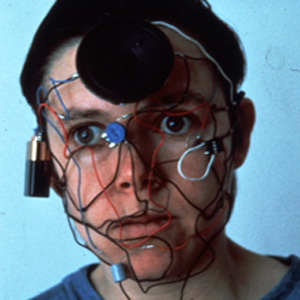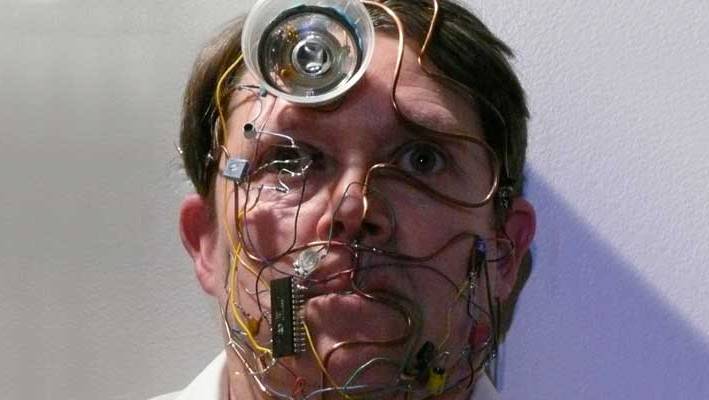Solid sheets of water pelt the roofs and cascade off patio overhangs in veritable walls off water. The intensity of the downpour is unexpected, exciting and awe-inspiring. Standing in the patio in my backyard, I listen as the rain mixed with hail pounds the fences and rooftops, turning a very familiar scene into the fury of the unknown.
 The incredibly intense storm, foretold only by a long, rolling wave of thunder, abates as quickly as it began. It’s followed by a sweet, gentle rain of some duration. The steady rain soothingly dominates the aural environment, and though the sudden storm brings a precipitous drop in temperature, it’s only mildly uncomfortable sitting on the terrace.
The incredibly intense storm, foretold only by a long, rolling wave of thunder, abates as quickly as it began. It’s followed by a sweet, gentle rain of some duration. The steady rain soothingly dominates the aural environment, and though the sudden storm brings a precipitous drop in temperature, it’s only mildly uncomfortable sitting on the terrace.
Listening to the movement of thought and emotion within oneself as one listens to the rain (that is, without direction and control), one becomes aware of subtle variations, which could never be discerned from indoors.
Such listening carries one into ineffable depths of being. Indeed, listening to the sound of water falling, one comes into contact with the essence of creation and destruction.
Water is the most important, changeable and powerful of all the elements. Water is the medium of life on earth and probably any planet on which it flows. We emerged from water, and dissolve into it. Everything on a living planet is born from and yields to water.
Creatures of both sea and land are bathed in sound, but hearing may be our least appreciated sense, even when we lose a good portion of it to aging or abuse of our ears. Unlike sight, we don’t control what reaches our ears. Without technological intervention, we can’t direct what sounds we hear. Either we respond consciously or react subconsciously to sound; we listen or we don’t. That’s what makes sound the best teacher of meditation.
Sight is closely linked to the human compulsion for control, while hearing can directly connect us to the human being’s capacity for clarity. Paying attention to one’s aural environment in the moment opens the mind and heart. Bionics threatens to destroy not only the capacity to listen and awaken meditation and grow into a human being, but even our basic humanness as we’ve known it for tens of thousands of years.
Just how is exemplified in a piece entitled, “Conjuring Images of a Bionic Future,” by Farhad Manjoo.” In it  he describes how a hearing impaired man in his mid-60’s was able, with the aid of a new generation of hearing aids (which Farhad gleefully names by company and product, thereby providing a great pitch) to carry on a conversation in a nightclub by adjusting numerous variables on his hearing aid and smart phone.
he describes how a hearing impaired man in his mid-60’s was able, with the aid of a new generation of hearing aids (which Farhad gleefully names by company and product, thereby providing a great pitch) to carry on a conversation in a nightclub by adjusting numerous variables on his hearing aid and smart phone.
Blocking the background noise and increasing the sounds of speech of the person in front of him through control of frequency, volume and direction, the man was able to carry on normal conversations in a very noisy room, which people with perfect hearing cannot do.
With unabashed hucksterism, Manjoo exclaims: “The latest crop of advanced hearing aids are better than the ears most of us were born with.” Then he cuts to the chase: “Wearing these hearing aids was like giving my ears a software upgrade. For the first time, I had fine-grain control over my acoustic environment, the sort of bionic capability I never realized I had craved. I’m 35 and I have normal hearing. But if I could, I’d wear these hearing aids all the time.”
The lack of self-awareness and reflection in such a statement is astounding. Manjoo, like many people, believe that technology is going to “let us surpass natural human abilities.” He does not consider that such thoughtless attitudes and approaches are already diminishing our capacities as human beings.
When you see someone walking around, even in a natural setting, with the ubiquitous ear buds in, listening to music or a book, you rightly assume they’re in their own world, cut off from people and things happening around them. How much worse will it be when every input is under our personal control and direction? Though many see that has techno-heaven, it’s actually techno-hell.
“Hearing aids are the natural place to begin our bionic quest,” Manjoo intones. People with any awareness and seriousness have to deeply challenge the “bionic quest,” since it threatens to render the human prospect a very dark one for the foreseeable future, if not destroy the inward human potential altogether.
If we don’t know what it means to be a human being without technological enhancements, then how can we grow into human beings once we merge with our machines? The hype and hope that we will be able to “surpass natural human abilities” is not merely childish; it’s extremely destructive.
Healthy senses are sacrosanct. When they are fully and harmoniously functioning together, a deeper level of awareness is awakened. That doesn’t mean blind or hearing-impaired people cannot awaken; on the contrary, compensation by the other senses often makes them more sensitively aware than the average person. Nor does it mean people with even moderate hearing loss should not welcome the increase in quality of life that the new technologies offer.
But the ‘bionic quest’—augmenting one or more of the senses in a non-impaired person—diminishes our awareness, our potential, and our humanity.
Martin LeFevre
“Conjuring Images of a Bionic Future”: http://www.nytimes.com/2014/04/24/technology/personaltech/app-controlled-hearing-aid-improves-even-normal-hearing.html

